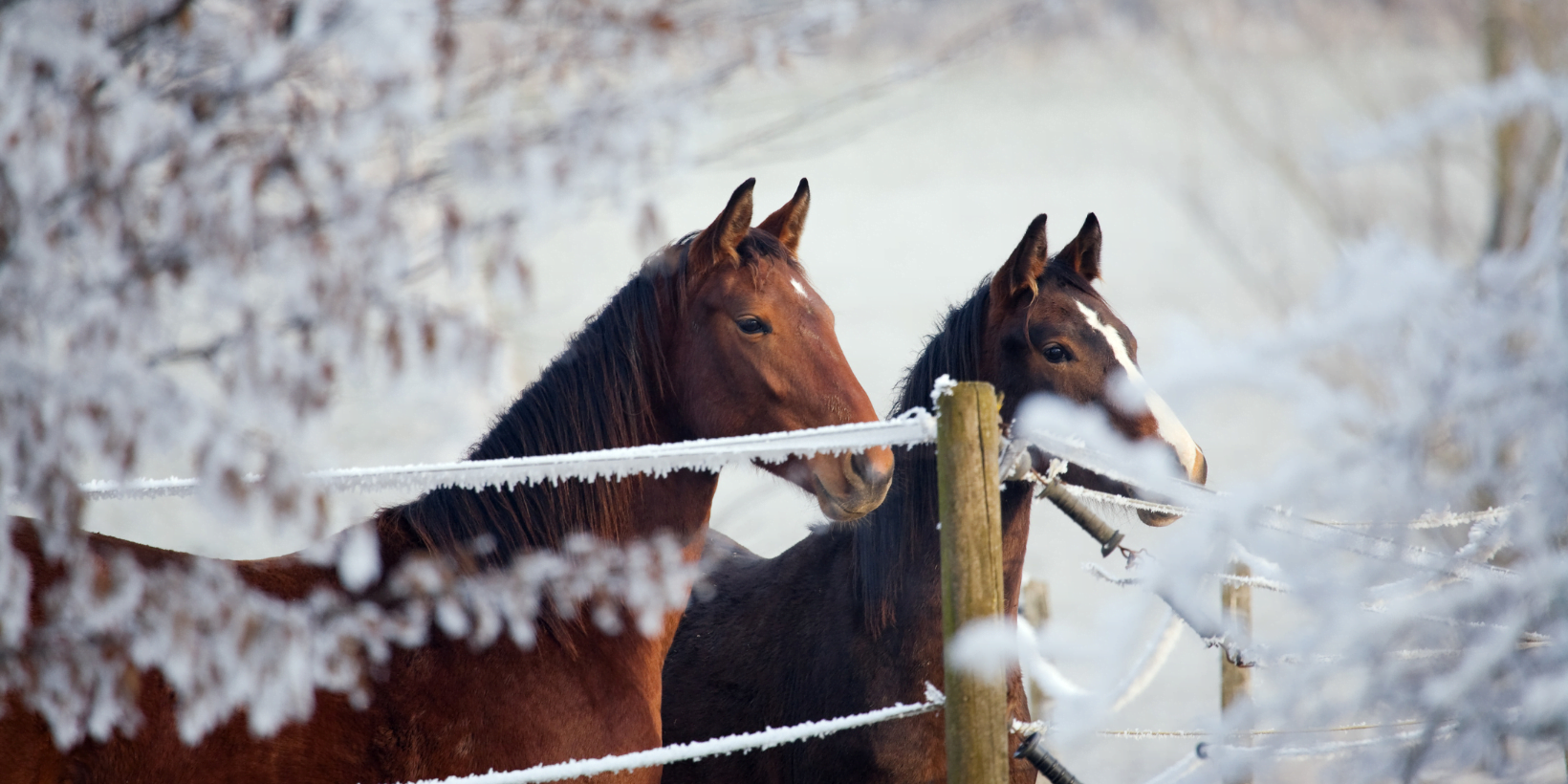Brrr… cold! Will my horse catch a cold from that?
Horses are not humans, we all know that. But when it's cold, it can sometimes be difficult to determine how your horse feels about it. Does your horse also feel cold when it's cold outside? And is that actually a problem? Will your horse, for example, catch a cold from it? And what can you do to support the immune system and respiratory tract?
Cannabinoids
Respiratory
Black cumin

1 December '23 • 3 min reading time
Horses feel most comfortable at temperatures between -5 and 10 degrees. Yes, that comfort temperature is much lower than for us humans. So, just because you feel cold doesn't mean your horse is cold. This is partly due to the digestion of horses. When digesting plant fibers in the large intestine, a lot of heat is released. In short, horses can handle winter temperatures much better than humans. They often even enjoy it!
Customization
Of course, there are individual differences per horse. For example, an older horse or a sick horse may need a blanket earlier to prevent all the energy from going towards keeping the horse warm. This could lead to weight loss and weakness. Also, if it's very windy or rainy, a horse may get cold faster than expected based on the temperature.
Cold?
Colds are caused by viruses and sometimes worsened by bacteria. A low temperature is never the cause of a cold. But the chance of a virus infecting your horse is higher when it's cold. This is because less blood flows to the mucous membrane of the respiratory tract when it's cold. This means that the local resistance does not function as well, and viruses can multiply more quickly in the nose and throat. Also, there are fewer white blood cells active in the airways when it's cold. In addition, cold temperatures make cold viruses more active. Finally, staying warm requires energy that a horse can no longer put into its immune system. Therefore, cold makes it more likely for viruses to strike.
Observe your horse!
To prevent colds in the fall and winter, make sure your horse gets good roughage, enough vitamins and minerals, and enough (free) exercise. A horse that is happy and healthy will be able to defend against viruses more easily. Also, assess whether your horse is cold or not. If your horse is shivering, that's pretty clear. But if the hair is standing upright and the skin still feels warm in the armpit and under the mane, then it's probably not that bad. If your horse is losing weight, it may also be too cold. If your horse is standing in a draft, you may need to take extra measures.
Supporting the immune system?
When you want to support your horse's immune system during the cold period of the year, various herbs are suitable. Rosehip contains a lot of vitamin C and is therefore very good for overall immunity. The best results can be expected from a liquid rosehip tincture. A tincture can extract many medicinal substances from the fruits, making its effects much stronger than using dried or fresh rosehips. Liquid nettle is also a boost for the immune system. It also has a mild blood-purifying effect and supports the intestinal flora. You can give nettle as a course over the feed. In addition, cannabinoids from cloves or the Indian herbal mixture Triphala can help support the immune system.
Herbs for coughs and respiratory irritations?
If your horse has symptoms of respiratory problems, such as coughing, you can both boost the immune system and combat the symptoms with black cumin. The thymoquinone compound from this plant has antibacterial and antiviral properties and is generally good for the immune system. Especially in combination with cannabinoids from cloves. In addition, you can support lung function with a herbal extract that assists the mucus function of the lungs. Cilia and mucus deep in the lungs filter dust particles and expel pathogens. When a horse coughs, this mucus function is often compromised. There are several herbs that have a soothing effect on the airways and replenish mucus. White willow, eucalyptus, and coneflower (Echinacea) are suitable for this, preferably in the form of a liquid extract.
Sources:
Kaneez Fatima Shad, Wissam Soubra, Dennis John Cordato. The role of thymoquinone, a major constituent of Nigella sativa, in the treatment of inflammatory and infectious diseases. CEPP. 2021. https://onlinelibrary.wiley.com/doi/abs/10.1111/1440-1681.13553
Tania M, Asad A, Li T, Islam MS, Islam SB, Hossen MM, Bhuiyan MR, Khan MA. Thymoquinone against infectious diseases: Perspectives in recent pandemics and future therapeutics. Iran J Basic Med Sci. 2021 Aug;24(8):1014-1022. https://www.ncbi.nlm.nih.gov/pmc/articles/PMC8591769/